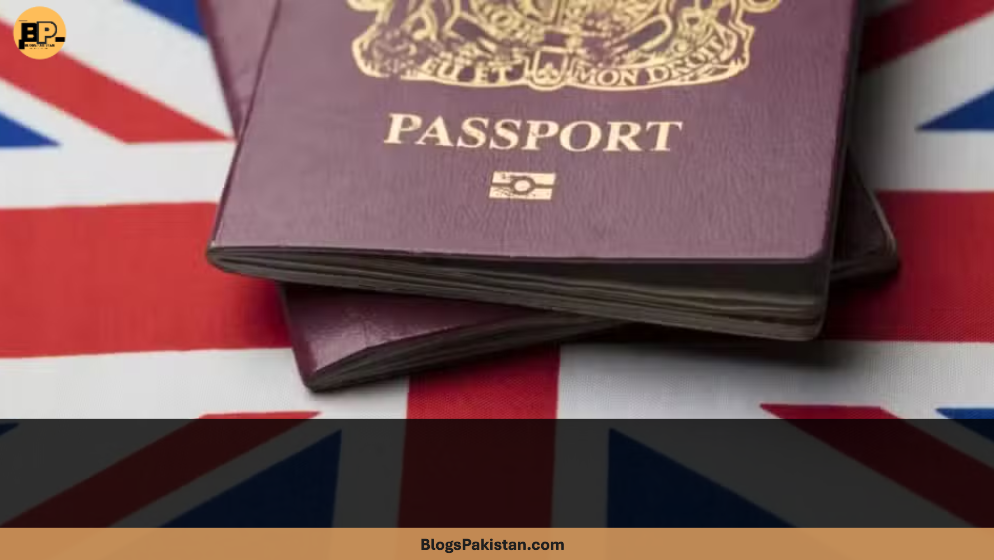The Big News: UK Ditches Visa Stickers, Goes Digital for Students and Workers
Picture this: You’ve just received your acceptance letter from a UK university or scored a job offer from London. Excitement? Off the charts. Then reality hits—endless paperwork, queues, and the terrifying prospect of handing over your precious passport for weeks, hoping it returns in one piece. But wait! The United Kingdom is finally tossing out the old visa sticker routine for most Pakistani and Indian students and workers. Welcome to the era of the e-Visa!
Why This Change? (Hint: It’s Not Just About Saving Paper)
The British High Commission in Islamabad, with Jane Marriott leading the charge, has announced this next-level upgrade: e-Visas will now cover most work and study visas for stays over six months. This isn’t just a digital facelift—it’s a complete transformation of the visa process. For years, the physical sticker (the “vignette,” if you want to sound posh) was king. Now, the UK is rolling out a system that’s more convenient, more secure, and—let’s be honest—much less likely to get lost in the mail.
How Does the UK e-Visa Work? The Digital Lowdown
Starting July 15, you can wave goodbye to the sticker shock (pun intended). Instead of sending in your passport and anxiously tracking its every move, you’ll apply online and, if approved, get your visa status updated digitally. Your immigration status lives in a UK Visas and Immigration (UKVI) online account, which you can access anytime, anywhere—even while sipping chai at your favorite dhaaba or coffee shop.
This means, for the first time, students, skilled workers, global talent, creative folks, and even those on the popular Youth Mobility Scheme can keep their passports during the visa process. If you’re in one of these categories, you’ll now have an online record as proof of your permission to enter or stay in the UK.
So, What’s an e-Visa Really?
Imagine an online VIP pass. The e-Visa is a digital confirmation that you’ve been cleared to enter, work, or study in the UK. It details all the conditions attached to your stay—but without needing anything physically glued, stamped, or stickered onto your passport. Need to show a landlord, employer, or university proof of your status? The “view and prove” service lets you share your digital credentials with a click. It’s the 21st-century answer to the “Sorry, my passport is at the embassy” excuse.
Who Gets the e-Visa? Who Still Gets Stickers?
Roll out the red carpet for:
- International students (including those on short-term 11-month study visas)
- Skilled workers (think health and care heroes, tech pros, and more)
- Global talent and international sportspersons
- Participants in temporary work schemes (charity, creative work, etc.)
- Youth Mobility Scheme explorers and Global Business Mobility movers
Dependants tagging along with the main applicant? You’re in. But if you’re visiting for a holiday, dropping by for a meeting, or just want to see Big Ben, you’ll still get your classic visa sticker for now. The UK promises to roll out e-Visas for all categories soon, but for now, general visitors and a few others will need to stick (pun intended again) to the old way.
How Does This Benefit Pakistani and Indian Students?
Let’s be real: The old process was nobody’s favorite. Forget the stress of losing your passport in the mail or the agony of waiting for updates. Now, you keep your passport safe at home while your application gets processed. Plus, the digital system slashes the risk of document fraud. Scammers, take note!
And for those juggling multiple applications (say, applying to universities in both the UK and USA), you no longer have to choose which embassy gets to hold your passport hostage. More freedom, less stress—a total win.
The “View and Prove” Service: Digital Flex for the Modern Immigrant
The UKVI online portal isn’t just a boring government tool—it’s your all-access pass. Need to show your employer you’re legal to work? Just generate a sharing code. Landlord wants proof of your student status? Send them a link. The days of photocopying, notarizing, and couriering documents are (almost) over.
What About Existing Visa Holders?
If you’ve already got a UK visa sticker in your passport, don’t panic. The UK government promises your sticker remains golden—no extra steps, no new application. Your rights and status are unchanged. But eyes peeled: the digital revolution is coming for ALL visa types in the future.
Why Should India Pay Attention?
While this announcement is from the UK’s Pakistan office, Indian students and workers are a massive part of the UK’s international community. India is often included in similar digital rollouts, and with both countries sending tens of thousands of young professionals and students to the UK each year, streamlined visa processes benefit everyone.
This move is also a clear sign that the global trend is toward digitization—and soon, lining up for hours at embassies may be as obsolete as floppy disks.
The Future: A Fully Digital Border
It’s not just about saving you a trip (or ten) to the visa center. The UK’s e-Visa rollout is about building a system that’s tamper-proof, easier to manage, and better for everyone involved. For South Asian tech-savvy youth who do everything from grocery shopping to wedding planning online, it’s a change that just makes sense.
Soon, all visa types—from short-term tourist visits to long-term residencies—will shift to this digital-first system. It’s a step toward what the UK government calls a “modern, digital border”—so next time you fly to Heathrow, you might only need your phone and your smile (well, maybe a boarding pass, too).
The Bottom Line: No More Sticker Shock
For Pakistani and Indian students and workers, the e-Visa is a massive leap forward. No more fretful nights wondering if your passport will return in time for your flight. No more sticker glue peeling off on a rainy London day. Just a sleek, secure, online record that follows you wherever you go.
So here’s to fewer queues, less paperwork, and passports that stay right where they belong—in your pocket. The future of UK immigration is digital, and it’s about time.










